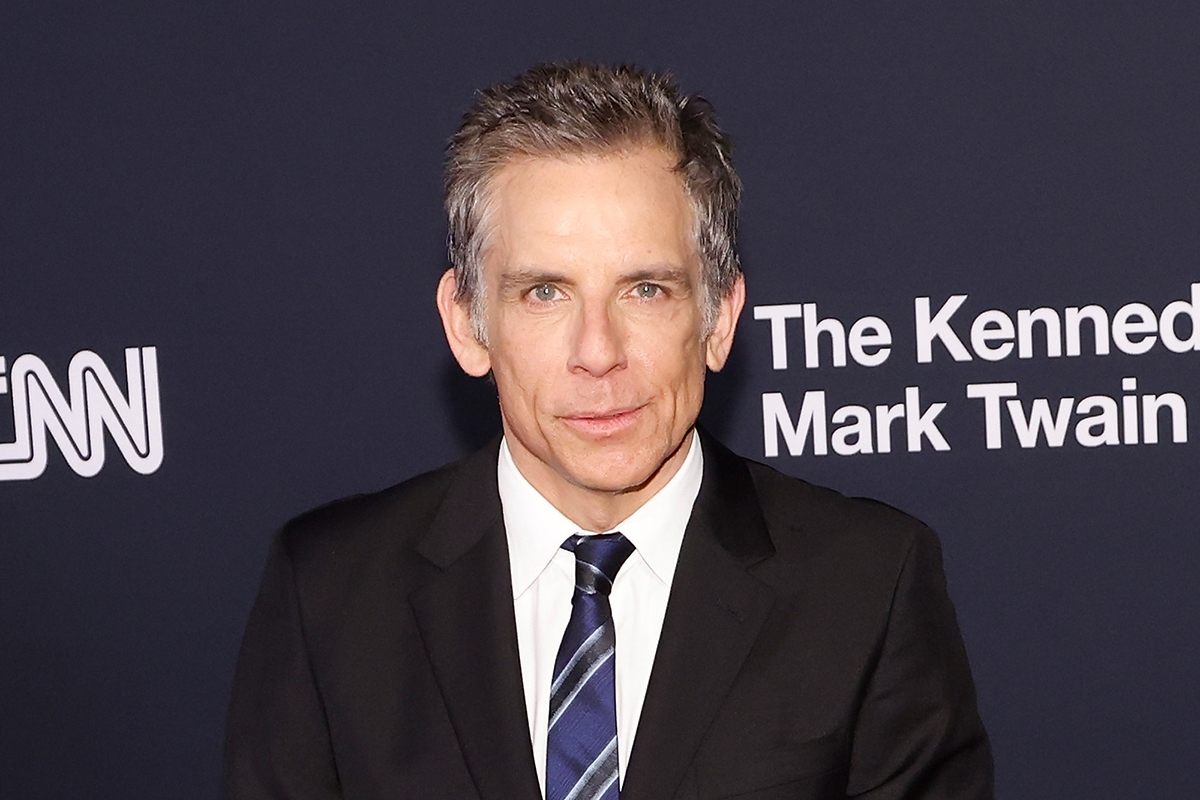Ben Stiller — like his late Jewish parents, the brilliant comedians Jerry Stiller and Anne Meara — has a long legacy of activism. In fact, it was, in part, the Jewish household he grew up in that inspired the actor and director to pen an op-ed on World Refugee Day about the current situation in Israel and Gaza, in which he calls for the end of the war, the return of the hostages, and decries the rise in antisemitism in the city of his youth and beyond.
“Ours was not a religious household, but we learned the traditions of inclusion and tolerance,” he wrote of his Jewish home in the essay titled “Why I Can’t Stay Silent About the Suffering in Israel and Gaza.”
He shared that his work with UNHCR, the UN Refugee Agency, as a goodwill ambassador, which had him visit victims of humanitarian disasters including the wars in Syria and Ukraine, as well as Lebanon, Guatemala, Jordan and Poland, made him feel like he can no longer stay silent about what is happening in Israel and Gaza and the scale of human suffering there. He wrote about how as a Jew, October 7 shook him, and how he grieves for those who suffered as a result of the “barbaric Hamas attack” that day. He wrote that his heart “aches” for the Israeli families who lost members to terrorism that day, and who are still waiting for the return of their loved ones held hostage, and how he also grieves all those who have lost their lives in Gaza and those who are suffering through the “awful reality” there now.
While he detests war, the father of two wrote, “Terrorism must be named and fought by all people of conscience on the planet. There is no excuse for it under any circumstances.” He wrote that Israelis have the right to live in “peace and safety.” Yet he added that he does not agree with all of Israel’s conduct around the war, calling for the violence to end, for Palestinian people living through a humanitarian crisis to get what they need, and for the hostages to be freed.
He iterated his belief in a two-state solution and the right for both Palestinians and Israelis to live in a “homeland” with “peace and safety.”
Stiller also denounced the “troubling conflation in criticism of the actions of the Israeli government with denunciations of all Israelis and Jewish people,” which is resulting in a rise of antisemitism, even in the streets of the city he grew up in, New York City, where he says he had a childhood that was devoid of antisemitism.
“Antisemitism must be condemned whenever it happens and wherever it exists. As should Islamophobia and bigotry of all kinds,” he wrote. “There is a frightening amnesia for history in the air. We must remind ourselves that we can only manifest a more hopeful, just, and peaceful future by learning from the past.”
While Stiller shared with Time that he didn’t really go to synagogue much after his bar mitzvah, he always felt connected to being Jewish. “My dad was pretty spiritual and definitely connected to his Judaism; my mom knew more about religion since she had to learn about it [when she converted] and was committed to it all,” Stiller told Mayim Bialik last year about his family’s Jewish identity (during which he also shared his favorite Yiddish words with the actress). Stiller has visited Israel on multiple occasions, including a father-son trip in which he had a whirlwind Israeli romance at 16, and used to break the glass Jewish wedding-style before he started shooting his movies. And of course, like his father, he is a purveyor of excellent Jewish jokes.
Stiller also wrote about his family’s immigrant roots in the op-ed, sharing that his paternal grandfather “came from Ukraine, where over 100,000 Jewish people lost their lives in the ethnic pogroms that preceded the great horror of the Holocaust by just two decades,” and sharing that he also feels connected to his mother’s Irish heritage and the story of her family coming to New York in search of a better future. Those two sides of his family, that were at first at odds and whose marriage was dealt with judgement, were eventually brought together by humor and love, and is maybe part of why Stiller believes that the way out of all the conflicts he’s been involved with is through peace.
“As I write this, there are about 120 million people all over the world who have been displaced by conflicts,” he ended his piece. “In the Middle East, in Ukraine, Sudan, and many other countries. They all deserve to live in safety and peace. The human suffering must end. We must demand this of our leaders. Peace is the only path.”








